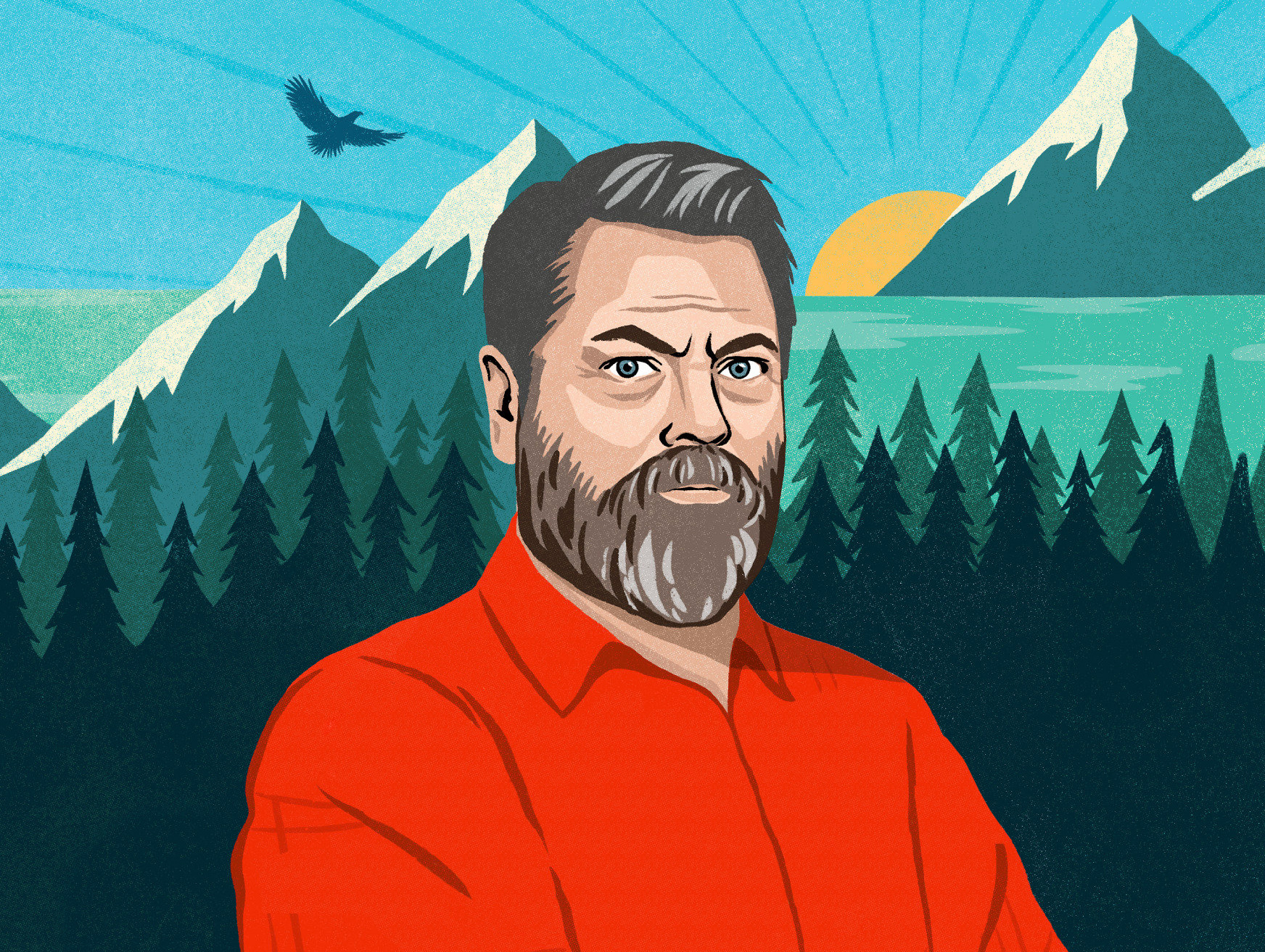
Where the Deer and the Antelope Play explores actor, humorist, and New York Times bestselling author Nick Offerman’s love of—well, exploring. Subtitled “The Pastoral Observations of One Ignorant American Who Loves to Walk Outside,” his latest is a humorous and rousing set of literal and figurative sojourns as well as a mission statement about comprehending, protecting, and truly experiencing the outdoors, narrated by the author himself.
To celebrate the release of Where the Deer and the Antelope Play, check out Nick Offerman’s 4 favorite audiobooks below.
“First up is Leaving Isn’t The Hardest Thing by Lauren Hough, read by the author and a terrific up-and-comer called Cate Blanchett. I love this author’s muscular voice, and this Blanchett kid is also no slouch. As an aspiring writer myself, listening to Hough feels like rolling my bicycle-with-a-flat into the bus garage where Uncle Don is just finishing up replacing a rear axle on a school bus.”
“It’s hard to be brief when expressing my adoration of this author and his voice, but I’ll just say that his voice, in its warm timbre, provides the perfectly comforting conveyance required to safely navigate this adventurous journey into the cosmic life force of which we are all a part, and the love and malevolence and magic all around us. If you’re not up on your Gaiman, let this serve as your gateway book.”
“This unwavering look at the culturally ingrained sexual proclivities of our species as they relate to young American women (and young men in the book’s twin: Boys & Sex) should be required reading across the board. I wish I’d been handed it as a user’s manual to puberty and early courtship.”
“Wow—here is another great example of why I recommend a spouse with excellent taste. Megan picked this novel for a road trip, and it’s a ripping good magically realistic yarn of family and ancestry and class and culture, beautifully rendered by the four performers.”
Start listening to Where the Deer and the Antelope Play today!
“Offerman brings dry humor and a reverence for nature and physical labor to his growing understanding of capitalist and colonial horrors, all while maintaining hope for the future.”
Seattle Times







